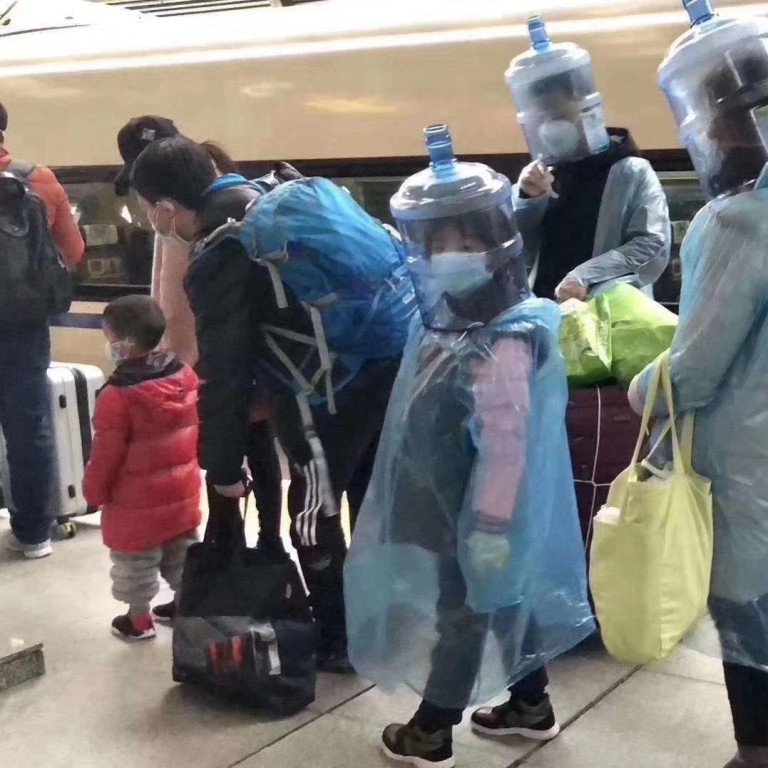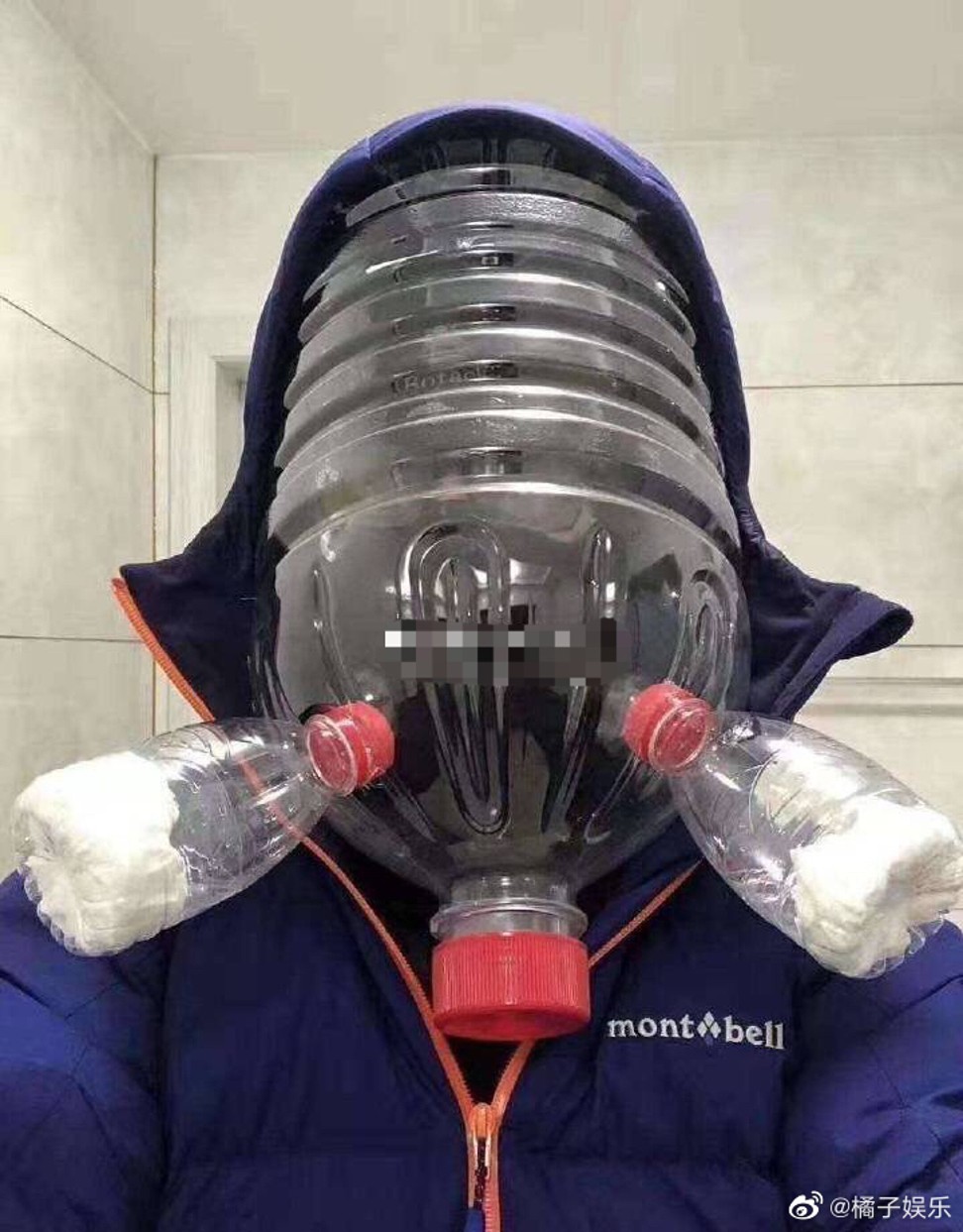
Coronavirus: desperate times drive some Chinese people to take desperate measures
- From the case of a woman who became ill from eating too much raw garlic to the people wearing water bottles as protection, some of the measures are unlikely to do much good
- One woman put so much surgical spirit on her clothing that she set fire to herself while cooking
Desperate to protect themselves from Covid-19, the disease that has affected more than 60,000 people and killed more than a thousand, fearful residents in China are turning to wacky, and sometimes dangerous, ways to protect themselves.
In some cases people have been influenced by online rumours and turning to unscientific remedies.
One woman in the eastern province of Zhejiang read online that raw garlic could help, but ate so much of it that she ended up needing hospital treatment after it inflamed her throat to the point where she could no longer speak.
The woman, from Tiantai county, identified only by her surname Zhang, ate around 1.5kg (3.3 pounds), around 16 bulbs, over two weeks.
She also asked doctors to perform a CAT scan on her lungs, even though she did not have a cough or fever, Qianjiang Evening News reported.
The results found there was no possibility that she had been infected with the coronavirus that causes Covid-19, but the report said a doctor had told the woman: “You haven’t got the coronavirus at all, but a lot of inner heat [traditional Chinese medicine term] because of having plenty of garlic.”
In another case, a woman in Hefei, in the southeastern province of Anhui, sprayed so much rubbing alcohol on her clothes that when she went to the kitchen to check on food she was cooking two minutes later, it caused an explosion that left her with serious burns on her face and hands, according to the Guangzhou Daily.
Kept apart by coronavirus, courier husband delivers message of love to nurse wife
People are also adopting a number of orthodox measures to try to protect themselves.
In some cases, high-rise residential buildings have provided tissues or even toothpicks for people to use when they need to press the lift buttons.
But some people have taken their protections to extremes, with pictures circulating online of people wearing big plastic water bottles on their heads.
But Gao Xiaodong, a hospital infection specialist from Shanghai Zhongshan Hospital, said these measures would not provide effective protection because the bottles “cannot filter viruses like masks can”.

He said some people believed it was possible to become infected through breathing in particles from the air, but he said there was not enough evidence to support this theory and it appear more likely that the virus was spread through touching or droplets.
“Out of panic, people have tried various ways to protect themselves. But people should know that this novel coronavirus is more contagious than Sars (Severe acute respiratory syndrome) or Mers (Middle East respiratory syndrome), but less deadly than them,” he said.
I am not a virus: Italian-Chinese man’s video spreads anti-racist message
“Online rumours that aim to grab the public’s attention send wrong messages and also fuel people’s panic,” he said, adding: common sense measures, such as avoiding crowds, wearing a surgical mask and washing your hands frequently would prove more effective.
Purchase the China AI Report 2020 brought to you by SCMP Research and enjoy a 20% discount (original price US$400). This 60-page all new intelligence report gives you first-hand insights and analysis into the latest industry developments and intelligence about China AI. Get exclusive access to our webinars for continuous learning, and interact with China AI executives in live Q&A. Offer valid until 31 March 2020.

